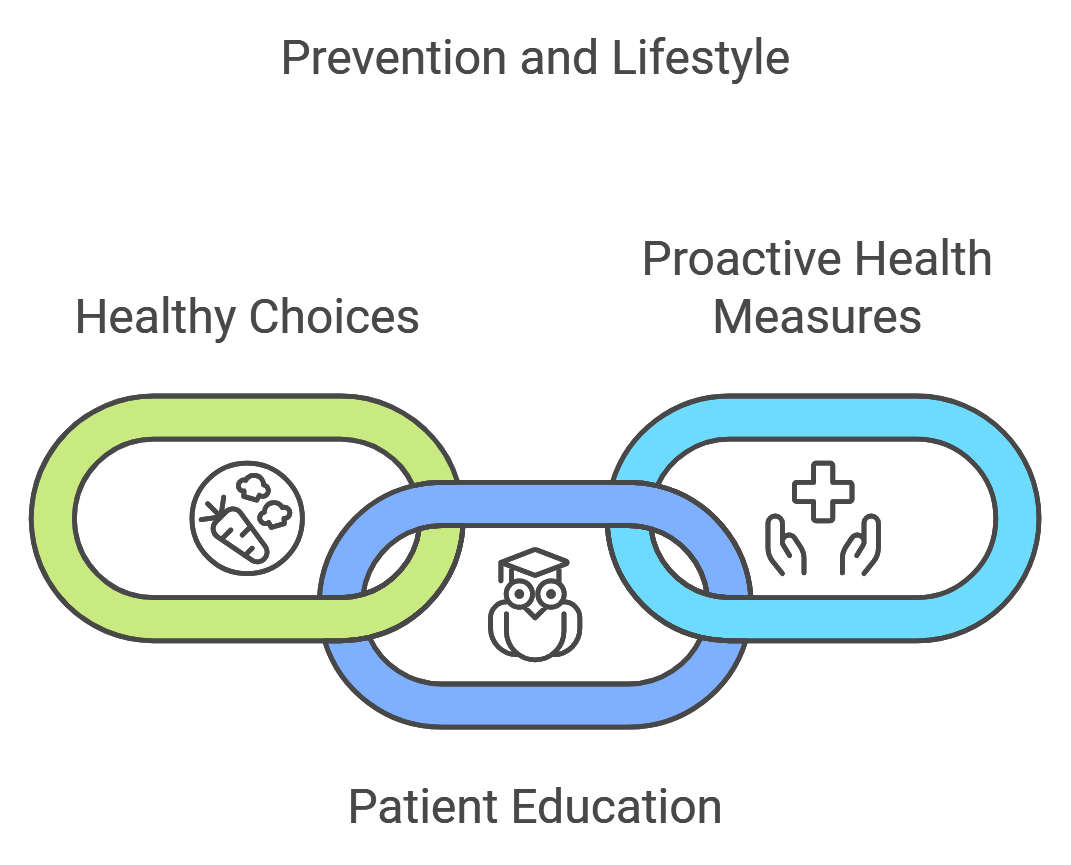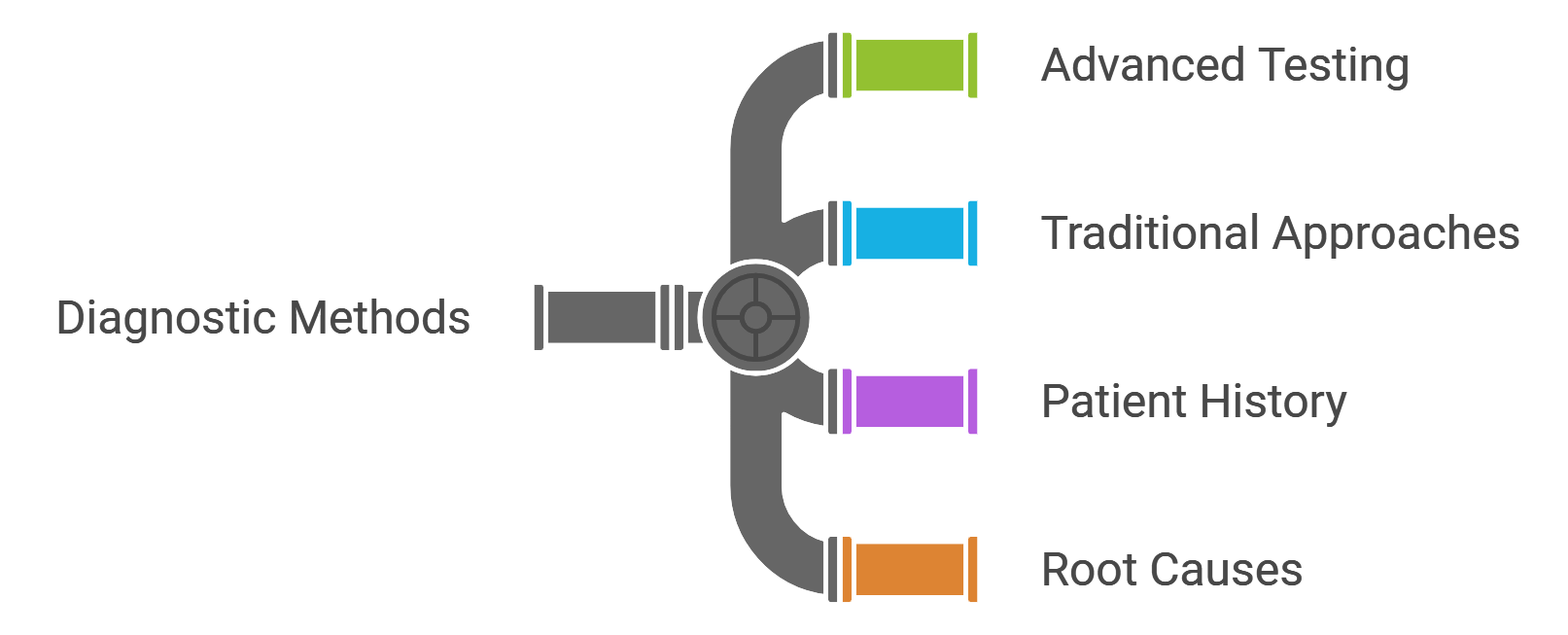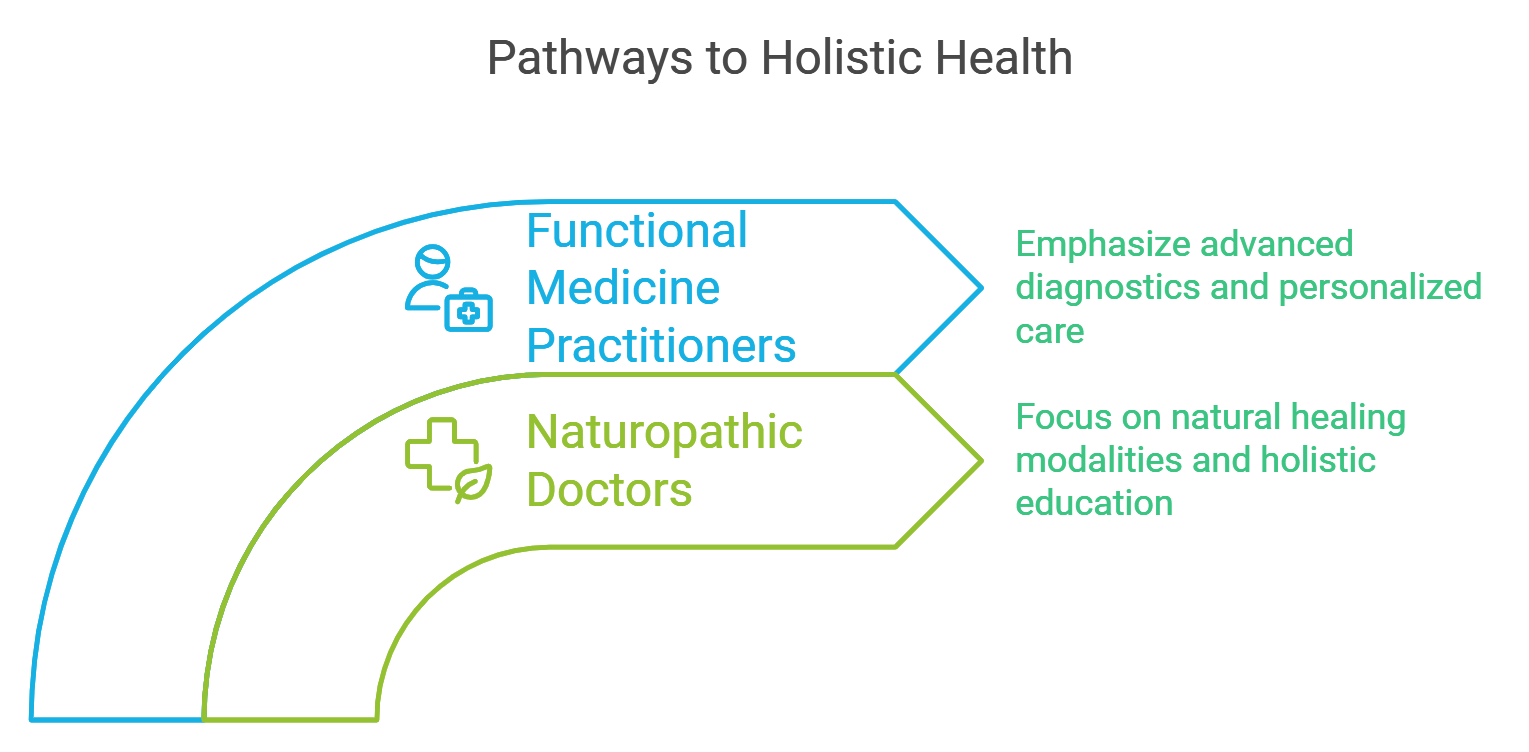In the realm of healthcare, two practices stand out for their unique approaches: naturopathic and functional medicine. Both emphasize prevention, holistic care, and the use of natural therapies. But what sets them apart?
Naturopathy, rooted in the healing power of nature, believes in the body’s innate ability to heal. It’s a practice that leans heavily on herbal medicine and nutrition. On the other hand, functional medicine, with its advanced diagnostic testing, seeks to understand the root cause of disease.
Both practices are patient-centered, focusing on individualized care. They aim to empower patients, educating them about their health and treatment options. Yet, their methods and philosophies differ in significant ways.
This article will delve into the differences and similarities between naturopathy and functional medicine. It will explore their principles, approaches to patient care, and treatment methods. By the end, you’ll have a clearer understanding of these two fascinating fields of healthcare.
Understanding Naturopathy
Naturopathy is a distinct system of primary healthcare that emphasizes prevention and the body’s ability to heal itself. It combines traditional healing methods with modern science. This patient-centered approach addresses the root causes of illness rather than just symptoms.
The principles of naturopathy include harnessing the healing power of nature. Practitioners believe that the body has an innate ability to maintain and restore health. They focus on supporting the body’s natural processes.
Naturopathic doctors often use treatments like herbal medicine, nutrition, and lifestyle counseling. These methods aim to promote natural healing and balance within the body.
The approach looks at all parts of a person’s health. This includes physical, mental, and spiritual well-being.
Accredited naturopathic medical schools provide comprehensive training. Students learn a variety of disciplines including botanical medicine and nutritional science. This rigorous education prepares naturopathic doctors to offer personalized healthcare solutions.
Common conditions treated by naturopathic doctors include chronic pain, allergies, and hormonal imbalances.
They aim to deliver comprehensive care by focusing on the root causes of illness.
Understanding Functional Medicine
Functional medicine is an evolving practice grounded in the principles of patient-centered care.
It combines new science with personal treatment plans.
Practitioners focus on the root causes of diseases rather than symptoms.
A functional medicine doctor often utilizes advanced diagnostic testing. This helps in identifying underlying health issues. By understanding genetic, environmental, and lifestyle factors, they tailor treatments for each patient.
Key components of functional medicine include:
- Personalizing care based on detailed patient histories
- Using nutrition and lifestyle changes as primary tools
- Employing a multidisciplinary approach to complex health issues
Functional medicine practitioners emphasize prevention and lifestyle modifications. They believe these strategies empower patients to achieve optimal health.
Training in functional medicine encompasses a broad range of subjects. Practitioners often have background knowledge in conventional medicine. This equips them to create comprehensive care plans that can complement traditional treatments.
Common conditions addressed include chronic diseases, hormonal imbalances, and gut health issues. By focusing on overall well-being, functional medicine aims to improve both physical and mental health.
A Shared Holistic Approach
Both naturopathy and functional medicine embrace a holistic approach to health. They consider the whole person, not just isolated symptoms or illnesses. This focus on holistic care is a defining similarity between the two practices.
In holistic healthcare, physical, emotional, and environmental factors are connected to one another.
Practitioners of both modalities aim to restore balance across these areas.
This idea understands that human health is complex and interconnected.
This shared approach underscores the importance of personalized care. Tailoring treatment to each individual’s unique needs is central to achieving wellness. Both practices emphasize patient education and empowerment.
Ultimately, the holistic approach seeks to harness the body’s innate ability to heal.
Naturopathy and functional medicine focus on finding the main causes of health issues.
They help the body to heal itself and boost long-term health and energy.
They work to enhance overall well-being through informed, integrative care.
Emphasizing Prevention and Lifestyle
Prevention is a cornerstone in both naturopathy and functional medicine. These practices prioritize preventing disease before it starts. This focus helps patients maintain long-term health and avoid future ailments.
A main part of prevention is changing your lifestyle.
Both practices advocate for healthy choices, such as balanced diets and regular exercise.
They think these changes can greatly improve health results.
In both disciplines, prevention goes hand in hand with patient education. Patients learn the impact of their daily habits on health. This knowledge empowers them to take control of their well-being.
Naturopathy and functional medicine focus on prevention. Their goal is to lower the number of chronic diseases.
They focus on building a strong foundation of health through proactive measures rather than reactive treatments.

Patient-Centered Care: A Common Goal
Patient-centered care is fundamental in both naturopathy and functional medicine.
This method looks at the person instead of just the illness.
The patient’s unique needs and circumstances guide the treatment plan.
Both practices prioritize personalized care. Treatments are tailored to each patient’s specific conditions and lifestyle.
The goal is to focus on the main causes of health problems, not just the signs.
Open communication is key in patient-centered care. Practitioners spend ample time listening to patients’ concerns and histories.
This builds trust and helps create good treatment plans.
Empowering patients is another critical aspect. Patients are encouraged to actively participate in their healthcare journey.
This empowerment results in better health and happier patients.
Diagnostic Methods: Advanced Testing vs Traditional Approaches
Functional medicine relies heavily on advanced diagnostic testing. These tests help uncover underlying health issues. Practitioners often use genetic, biochemical, and lifestyle assessments.
In contrast, naturopathy usually prefers old-fashioned ways to diagnose health issues.
These include physical exams and patient interviews. The aim is to understand the patient’s overall health picture.
Both methods show that we need a full patient history.
Functional medicine uses cutting-edge technology to complement the history. Naturopathy leans more on observation and patient interaction.
Despite their differences, both practices aim to identify root causes. They seek to understand the complex interplay of various health factors. This shared goal underscores the importance of thorough diagnosis.

Treatment Modalities: Natural Therapies and Personalized Plans
Naturopathy places great emphasis on natural therapies. These include herbal medicine nutrition and acupuncture. The focus is on harnessing the healing power of nature.
Functional medicine, meanwhile, tailors personalized treatment plans. These plans often incorporate nutrition, supplements, and lifestyle changes. The approach is to address individual health needs.
Both practices prioritize the patient’s innate ability to heal.
They want to help patients by teaching them and getting them involved.
This empowerment is fundamental to their treatment strategies.
While differing in techniques, both approaches are patient-centered. They strive to promote holistic health through comprehensive care. This commitment to holistic health forms their common ground.
Education and Training: Naturopathic Doctors vs Functional Medicine Practitioners
Naturopathic doctors undergo rigorous training. They study at accredited naturopathic medical schools. Their education covers a wide range of natural healing modalities.
The path to becoming a functional medicine practitioner varies. Many start as conventional doctors. They then receive training in functional medicine to expand their practice.
Naturopathic training includes comprehensive courses in herbal medicine, nutrition, and body systems. The goal is to prepare practitioners to support the body’s healing power. This holistic curriculum sets the foundation for naturopathic practice.
In contrast, functional medicine training emphasizes advanced diagnostic testing and personalized care.
Doctors learn to combine modern science with traditional healing methods.
This special combination helps them deal with difficult health problems.

Regulatory and Licensing Standards
Naturopathic doctors must meet strict licensing criteria to practice legally.
These standards vary by location. They usually require board certification and ongoing training.
Functional medicine practitioners, often licensed in another healthcare field, integrate functional training into their existing credentials. Regulatory oversight ensures that both fields maintain quality care.
Choosing the Right Path for Your Health
Selecting between naturopathy and functional medicine depends on your health needs. Each approach offers unique benefits and philosophies to consider.
Research both options and consult with practitioners. Understanding your health goals and preferences will help guide you to the best choice.
Conclusion
Both naturopathy and functional medicine emphasize a holistic approach. They focus on prevention and personalized care.
Whether you choose naturopathy or functional medicine, both prioritize treating the root cause of illness for lasting health.

